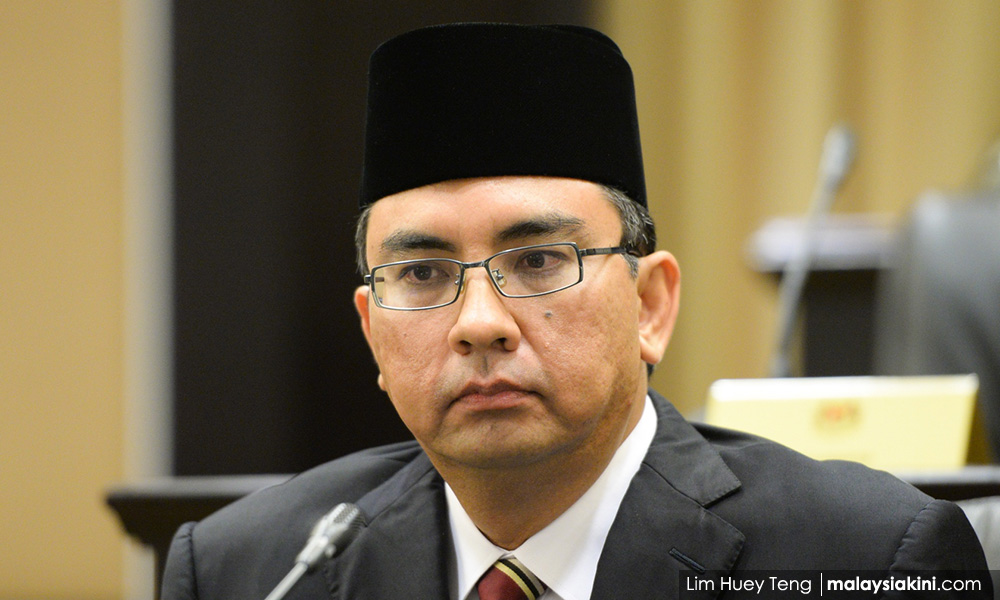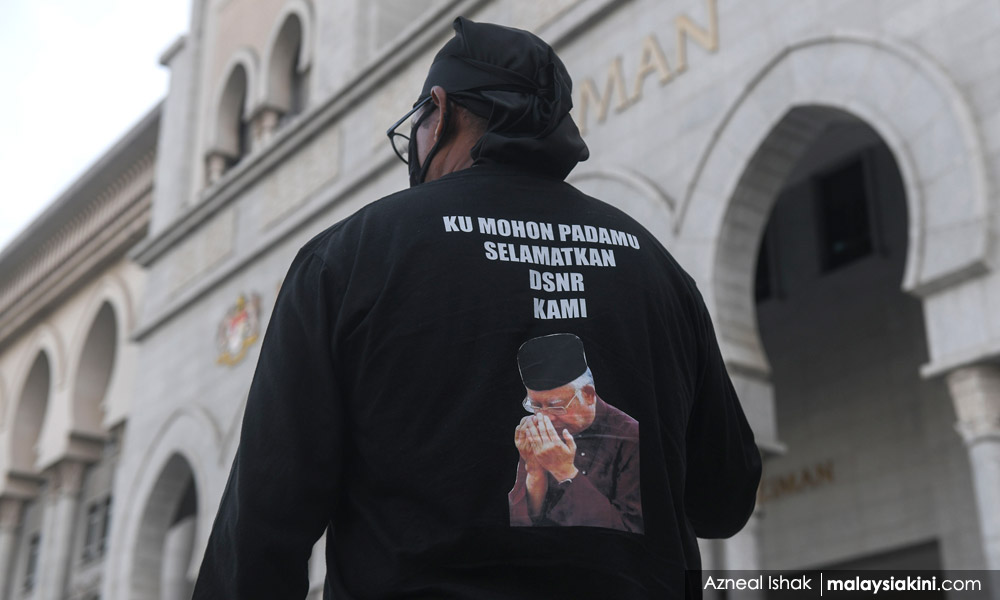I remember what it was like when I first heard justice Mohd Nazlan Mohd Ghazali’s High Court judgment that Najib Abdul Razak was found guilty in the SRC trial.
The former prime minister was sentenced to 12 years in jail, RM210 million in fines, with the full judgment detailed in 800 pages. It was July 28, 2020, slightly more than two years since the day we removed the longest-ruling coalition from power, but also five months after the Sheraton Move, which almost erased everything we gained.
Mohd Nazlan’s judgment was unexpected in a country turning dark; it was the flicker of light that makes you think there is still hope.
But this time, a night before the Court of Appeal judgment, I did not dare to pray for justice. We had a change in prime minister and government, with both aligned to Najib.
Politics of party-hopping and favour exchange is now the norm. The mismanagement of the Covid-19 pandemic had structurally destroyed our economy and society. Many have moved out of the country without looking back.
Beyond this, I did not dare to pray for justice because I know that it takes a rare commodity – a secret ingredient – for the Court of Appeal judges to dismiss Najib’s appeal: Moral courage.
Would the three judges, led by justice Abdul Karim Abdul Jalil, follow Mohd Nazlan’s verdict, or will they treat him as an anomaly?

For the Court of Appeal to uphold Najib’s conviction, they would have to find moral courage in three spheres: Personal, career, and fraternity.
1. Personal
All three Court of Appeal judges had to be bold enough to stand up against Najib, who is one of the most senior politicians in the country.
Unlike most ‘hard’ cases in the UK that require moral courage, this is not a case of tribunal fees, personal injury or litigation costs. This is a historic and unprecedented case of levelling a criminal prosecution and conviction against a former prime minister.
Worse, Najib is no longer a despised character in public. Quite the opposite.
Three years of shrewd and consistent branding has allowed him to attract loyal supporters and become one of the most popular politicians online.
He garners millions of views every month. His recent leadership in BN’s Malacca state election has also been indicative of his potential return as the 10th prime minister.
In other words, you are ruling against not only a former prime minister but potentially a future prime minister.
Judges in hard cases like this have two choices: Take the road of least resistance (allow appeal) or the riskier pathway (dismiss appeal).

By choosing the riskier path, the three Court of Appeal judges have chosen to set aside any sympathy, predisposition, or bias by adopting a potentially costly moral action to fulfil their obligation as the guardians of the law.
2. Career
One of the most common reasons for making safe decisions is career advancement and promotions. Our judicial system remains flawed, with the prime minister retaining tremendous power to override promotion proposals and staffing members in the Judicial Appointments Commission.
This meant that in making judgments, judges constantly worry if what they rule, write, and say would offend the prime minister and/or his government. As high performers in their field, superior court judges have ambitions to rise up the ranks.
The shadows of political patronage from the 2007 judge fixing scandal are looming over their heads. Will they be disadvantaged if their ruling angers the political elites?
To risk their careers for the moral duty to do what is right requires moral courage. Lord Burnett, the current lord chief justice of the UK, said that “... A good judge will not let ambition influence the outcome of a case or play to the crowd in the expectation of praise.”
It goes beyond being well-qualified or well-read. It takes a certain kind of character to do the right thing. It takes moral courage.
3. Fraternity
Perhaps sometimes overlooked, a difficult decision may alienate the judges in their own judicial fraternity. Like any workplace and judiciary around the world, judges have camps and factions, divided by beliefs, background and/or past conflicts.

In a high-profile case like the SRC trial, judicial factions could be polarising. Tactical or not, when Najib’s lawyer Muhammad Shafee Abdullah attacked Mohd Nazlan by calling him “hopelessly incompetent” and his judgment “poisoned”, it has the effect of further isolating Mohd Nazlan among the judicial fraternity. That means discharging your duty as a judge becomes difficult as it puts your circle of friends at stake.
A judge’s job sounds simple in theory: Apply the right laws to the right facts. But in reality, Najib’s case has tested the characters of four judges whom history would remember as being responsible for healing our democratic wounds.
Those who stand with Najib’s politics may unfairly blame them, but students of law would benefit from having them as role models of justice, in line with the profession’s bold oath of exercising their duty “without fear or favour”.
Shafee said that the verdict is not the end. He is confident that the Federal Court would overturn the conviction since this has happened “50 percent of the time” in his career.
He is right that this may still be 50:50 – and we would still have to count on moral courage to tilt the balance. The only difference is that this time, we are counting on the nation’s most powerful judges. - Mkini
JAMES CHAI is a political analyst. He also blogs at www.jameschai.com.my and he can be reached at jameschai.mpuk@gmail.com.
The views expressed here are those of the author/contributor and do not necessarily represent the views of MMKtT,



No comments:
Post a Comment
Note: Only a member of this blog may post a comment.